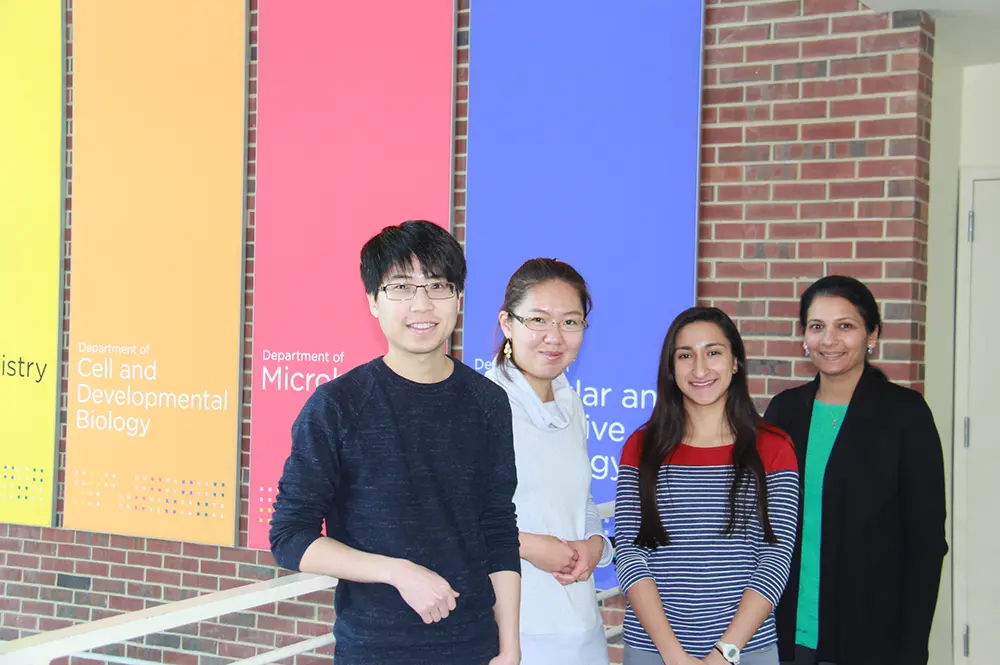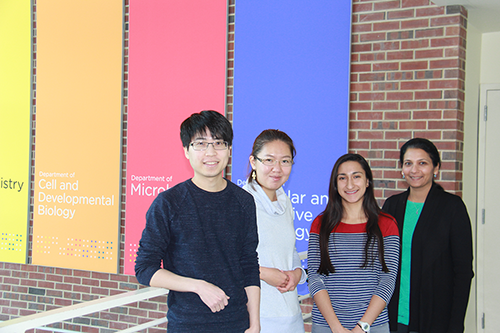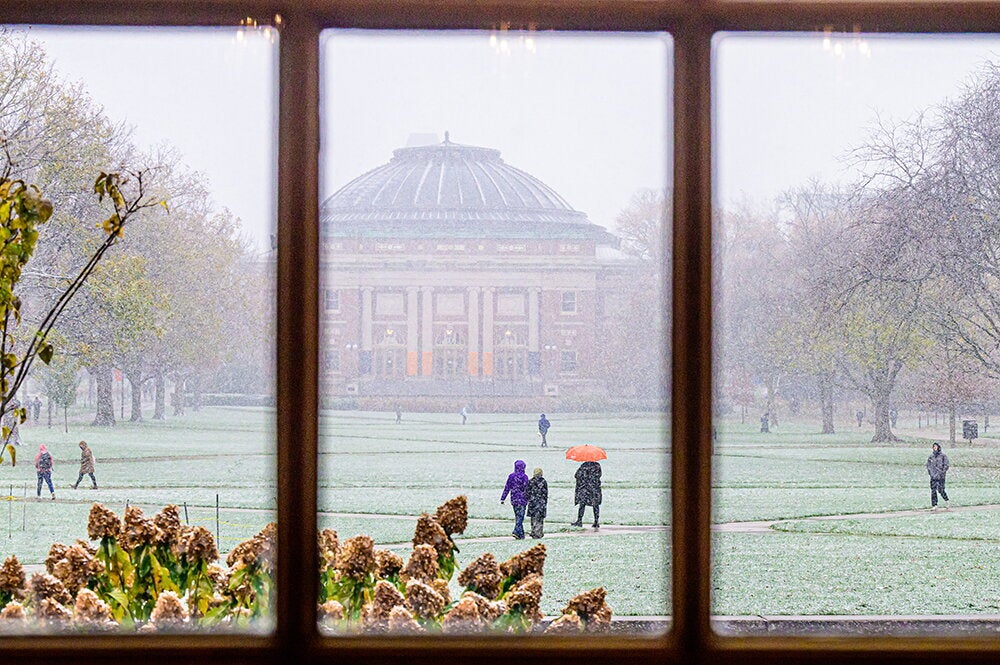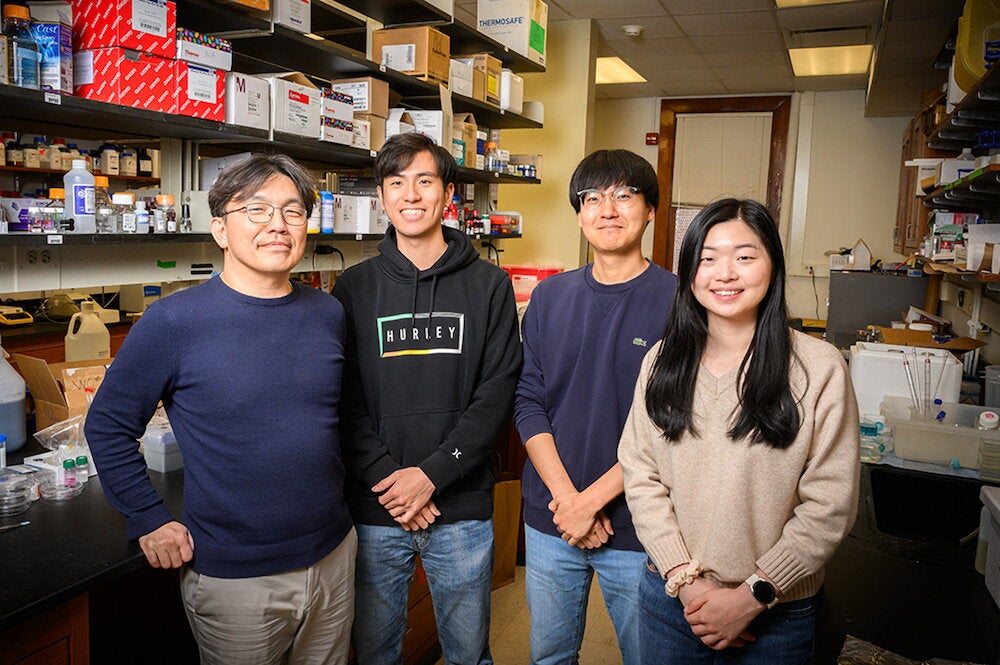

A research group at Illinois has found that a protein previously thought to be active only in cell repair is required for DNA replication, a transformational discovery recently published in the Proceedings of the National Academy of Sciences (USA).
With cell duplication posing a risk to genome stability, the protein RFWD3 not only repairs DNA damage, but researchers found that it is critically important in preventing damage during normal DNA replication—the process by which cells duplicate their DNA. Understanding RFWD3 is critical to maintaining genomic stability and preventing diseases such as cancer, where abnormal cells relentlessly replicate and spread to surrounding tissues.
“It's a paradigm shift in the way we think about how this protein functions,” said Supriya Prasanth, professor of cell and developmental biology.
Replication stress, the primary cause of genome instability, is defined as the slowing or stalling of replication forks—the structure where DNA replication takes place. The stress usually occurs when there is an uncoupling between DNA strand unwinding and synthesis of new DNA, causing abnormal fork structure and resulting in replication fork stalling.
Mutations in RFWD3 were associated with fanconi anemia, a rare disease that affects the bone marrow and blood cell production. Fanconi anemia is caused by abnormalities in a genome that prevents cells from repairing damaged DNA. Along with originating within a cell, DNA damage can be caused by chemotherapy, a cancer treatment given to block cell division.
The graduate students, Yo-Chuen Lin, Yating Wang, and Rosaline Hsu, have worked with Prasanth for years, working to understand why RFWD3 was crucial for DNA replication.
“It was really special, especially for the graduate students, to be able to see that their discovery is now going to be read by all the peers in the field,” Prasanth said.


